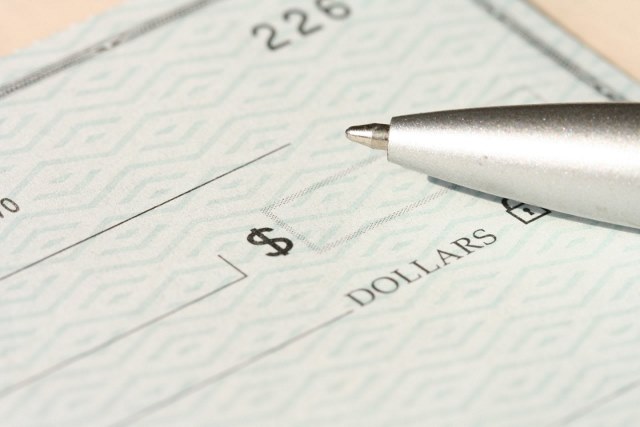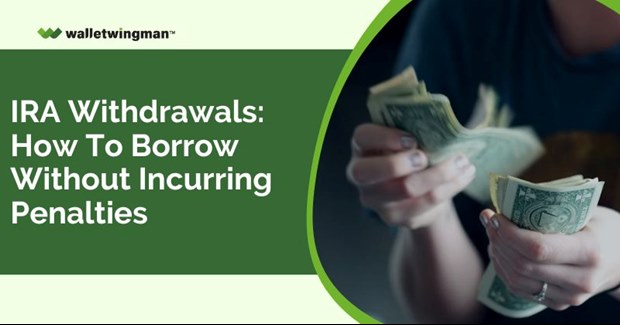We can go to extreme lengths to resolve our financial burdens in dire need. You may even retrieve funds from your Individual Retirement Account (IRA) if push comes to shove.
Unfortunately, you face several restrictions in withdrawing money from your IRA because of the regulations set by the Internal Revenue Service (IRS). Moreover, since IRAs support your financial well-being when you can no longer work, withdrawing from them now could do more harm than good.
But when situations demand, can you borrow money from your IRA without penalty? You may have little choice if your circumstances are so dire that it dictates that you get funds by all means, and as such, only the option of dipping into your IRA remains. Can you borrow money from ira without penalty? The answer is a resounding YES.
The IRS discourages you from taking out loans against the money in your IRA by imposing severe financial penalties that may seem difficult to circumvent. Fortunately, some exceptions and workarounds permit the at least temporarily using IRA money before retirement age without incurring penalties.
To effectively achieve this, you must take caution in ensuring that you do not break loan-related regulations. If not, you or the IRA owner might have to pay hefty fines and taxes. In this article, you will learn how to avoid paying a penalty when withdrawing funds from an IRA early.

First, let’s take a look at the basic rule of IRA withdrawals:
Basic Rule

As stated earlier, IRAs do not allow for loans. However, you can borrow money from IRA without penalty if you put the money back into the IRA account within 60 days. Doing this not only exempts you from taxes but also prevents you from incurring IRS fines.
You must pay close attention to the regulations that apply to each case. For instance, you can only make withdrawals once a year. Additionally, the 10% penalty may apply if you withdraw more than is permitted, don’t have enough documentation to support your claim, or take the withdrawal before or after the deadline.
Other points to take note of are:
1. Read the Fine Print
You must pay close attention to the regulations that apply to each case. Since the rules governing IRA withdrawal are pretty stern, you must consider your circumstances and apply accordingly.
For instance, you’ll need proof of disability if you apply for the funds to resolve disability expenses. You must also ensure you don’t withdraw over the maximum limit or take the withdrawal before or after the time specified. Floating any stipulation may cause you to incur a penalty.
2. You May Incur Taxes
You are exempt from paying taxes but not the 10% tax penalty. You will nearly always be required to pay federal and state income taxes on the funds. So make allowance for taxes when determining the amount to withdraw.
3. Loss of Retirement Savings
Remember that you won’t want to go broke during your retirement years. This is why you may be disadvantaged if you withdraw early from your IRA and refuse to pay back the amount. Not only do you exhaust your savings, but you also lose the long-term earning potential on that money.
4. Prioritize Other Sources
When in dire need of financing, the first question you ask yourself should not be, ‘Can I borrow money from my IRA without penalty?’ Consider alternative funding sources before making an irrevocable withdrawal from an IRA. If your workplace offers a 401(k), taking a loan from it could be wise.
With a 401(k) loan, you can take out money from your account at a modest interest rate that you pay for yourself and repay it within five years. This reduces the time you lose out on earning growth while replenishing your funds.
You can also explore other options, like how do you borrow money from cash app.
Does It Matter The Type Of IRA You Possess?
Whether you possess a traditional IRA, SIMPLE, SEP-IRA, or a Roth IRA, the restriction on withdrawing from your IRAs applies. Only the fundamental rule of 60 days applies to you. Distributions are taxable as income if you roll them over into non-SIMPLE accounts. Like other IRAs, you can only roll over once per calendar year.
However, you might be able to get around the IRS’s prohibition on IRA withdrawals through the following:
1. First Time Homebuyer

The IRS mandates that IRA owners must be first-time homebuyers to qualify to borrow money from IRA without penalty. However, this is only sometimes the case. Even if you already own a home, you can access the funds if you match the IRS’s definition of a first-time buyer, which generally refers to someone who hasn’t owned a property in the previous two years.
You can withdraw up to $10,000 penalty-free, which you can use to buy, construct or rebuild your home. While $10,000 may not be enough to foot your entire costs for building your home, it can get your foot in the door.
Moreover, the withdrawal is taxable and may be subject to an IRS penalty of 10% if you are under 60 years and do not pay within the specified period. You can, however, avoid taxes and an IRS penalty if you repay the entire amount within 60 days.
2. Resolving Health Insurance While Unemployed
When it comes to health concerns, the last thing you consider is, ‘Can you borrow money from IRA without penalty?’ this is even more so if you are unemployed. Fortunately, there is no penalty if you distribute money to pay for health insurance premiums for you, your spouse, and any dependents.
Consequently, you will have to validate your unemployment status. You must have received unemployment benefits for three months straight weeks to be eligible. Additionally, your IRA withdrawal must occur the same year you lost your job or the year after.
In the peculiar case that you regain employment, you can still make a withdrawal only within 60 days of your recent job. Additionally, your unpaid medical costs that total more than 7.5% of your yearly adjusted gross income may incur penalties.
3. Higher Education Expenses
If you find out how to borrow money or IRA funds to resolve higher education expenses for yourself, your spouse, your children, or your grandkids, you might not be subject to the penalty.
You will gain funding to resolve educational costs like tuition, hostel, supplies, and equipment required for enrollment or class attendance.
4. Inherited IRAs
An inherited IRA is an account opened when an individual inherits an IRA or employer-sponsored retirement plan after the original owner dies. If you are a beneficiary of such an account, you can take penalty-free withdrawals if you are below 59½ years old. However, you must pay income tax on any such distributions.
5. Resolve Disability Expenses

If you are disabled or cannot work due to severe physical and mental problems, you are eligible for penalty-free withdrawals from your retirement accounts. You must show proof of disability to get the green light to access the funds.
6. Establish an Annuity
While researching how to borrow money from IRA without penalty, we discovered that the early withdrawal penalty does not apply to IRA withdrawals made in a series of annuity installments. To avoid the sentence, you must employ a distribution strategy authorized by the IRS and make at least one withdrawal each year.
The payments are often computed with expert assistance based on your life expectancy or the combined life expectancies of you and your beneficiary. The distributions can start at different ages and cease after meeting the necessary periods, giving this system more flexibility.
7. Adoption or Childbirth
As of 2020, a new exception was added to incentivize parents to continue paying their contribution while having access to funds to resolve costs that often arise with child care. The law states that within a year of the adoption or birth of a child, parents may withdraw up to $5,000 each without incurring any penalties.
Furthermore, parents can redeposit the withdrawals without concern for the annual contribution cap. So, they can pay back and still contribute the entire amount to their IRA in the same calendar year.
Summary
You now know how to borrow money from IRA without penalty. However, whether it’s a good idea is another question to consider. You are also aware of how much money you can borrow from the IRA without penalty.
Even though the law prohibits IRA loans, there are several ways to access your retirement money without paying penalties before you reach retirement age. There are also other options if you need a personal loan quickly. You can contact your bank, try to obtain a loan from a cash app, or withdraw funds from your 401(k).
Occasionally, you can avoid taxes on income taxes, IRA rollovers, and reverse rollovers to your 401(k) plan. Always attempt to explore all possibilities, and only take a withdrawal from your IRA as a last resort.


